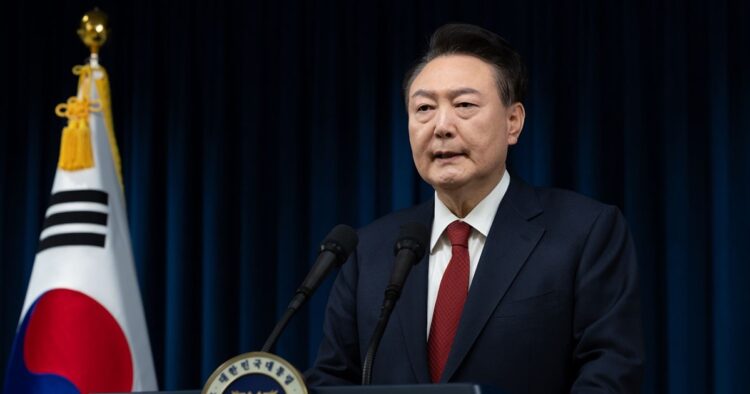On Saturday, South Korea’s National Assembly voted to impeach President Yoon Suk Yeol over his recent declaration of martial law. The motion passed with a decisive 204-85 vote, triggering the suspension of Yoon’s presidential powers and duties. Official documents on the impeachment will be delivered to President Yoon and the Constitutional Court, which has 180 days to decide his fate.
During this period, Yoon will remain suspended from his duties. Yoon will be removed from office if the court upholds the impeachment and a national election to choose his successor must be conducted within 60 days.
The impeachment comes following Yoon’s controversial martial law declaration earlier this month, which faced sharp criticism from opposition lawmakers.
Last Saturday, Yoon narrowly survived an impeachment vote when ruling party lawmakers boycotted the session. After declaring martial law, Yoon sent hundreds of troops and police officers to the parliament to try to impede its vote on the decree before they withdrew after the parliament rejected it. No major violence occurred.
Opposition parties and many experts accuse Yoon of rebellion, citing a law clause that categorizes as rebellion the staging of a riot against established state authorities to undermine the constitution. They also say that by law a president in South Korea is allowed to declare martial law only during wartime or similar emergencies and has no rights to suspend parliament’s operations even under martial law.

















Comments